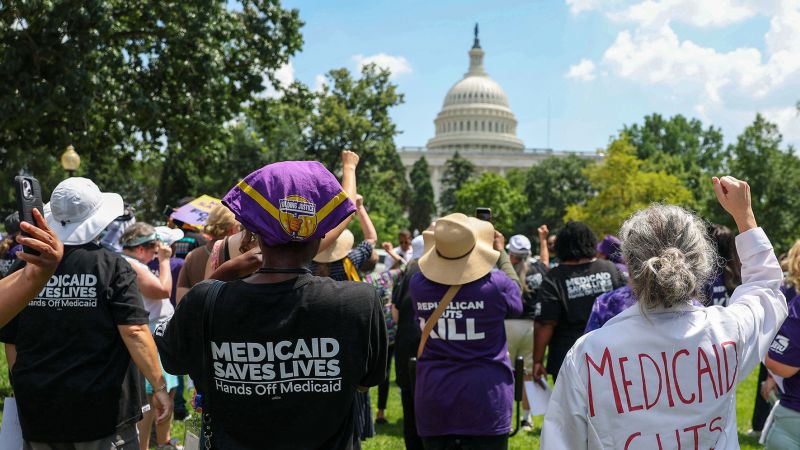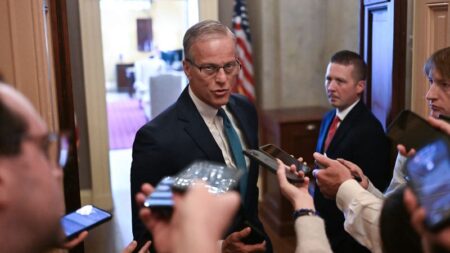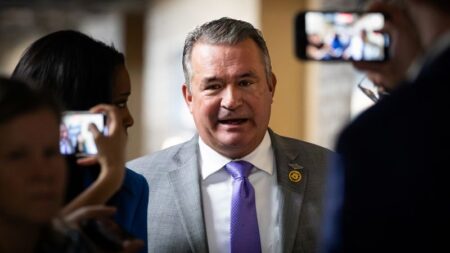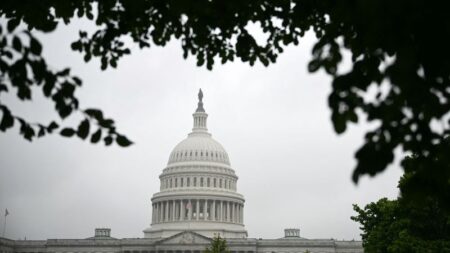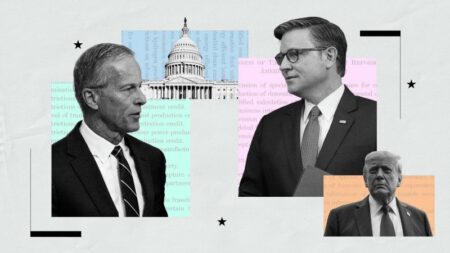Senate Republicans are currently grappling with their proposed version of a significant domestic policy overhaul championed by former President Donald Trump. Among the most contentious aspects of this proposal are the anticipated cuts to Medicaid, which are causing unrest among GOP lawmakers, especially those who are preparing for reelection in 2026. Senators such as Susan Collins of Maine, Thom Tillis of North Carolina, and Joni Ernst of Iowa are particularly concerned about the implications these cuts could have on their constituents’ access to healthcare, especially in the face of numerous upcoming election challenges.
Collins has been advocating for a provider relief fund, while Tillis has alerted GOP leaders about the potential repercussions for constituents reliant on Medicaid in his state. Furthermore, Ernst has found herself in a precarious position, facing backlash from constituents for her dismissive remarks to a town hall protester, which included the controversial statement, “Well, we all are going to die.” This has attracted a slew of Democratic challengers eager to capitalize on her increasingly tenuous standing among voters.
A recent analysis by the Kaiser Family Foundation (KFF) underscores the critical nature of these Medicaid cuts, which could result in tens of thousands of residents losing their coverage in Maine, North Carolina, and Iowa. This creates a political environment ripe for Democrats, who are strategizing to use the issue of healthcare—particularly the Medicaid cuts—to chip away at the Republican majority in the Senate, which currently boasts a 53-seat advantage.
The Democratic messaging strategy has been effective in linking the Medicaid cuts predominantly aimed at low-income Americans to tax breaks primarily benefiting the wealthy. The Congressional Budget Office (CBO) estimates that over the next decade, these cuts could decrease federal Medicaid spending by approximately $800 billion, with significant changes intended to implement work requirements for certain adults and delay a Biden administration rule designed to ease enrollment processes for Medicaid.
Brad Woodhouse, an executive director at Protect Our Care, a healthcare advocacy organization, criticized the bill’s direction, suggesting that its implications will alienate a broad spectrum of constituents except for affluent individuals and large corporations. While Republicans defend the proposed cuts as necessary for maintaining the program’s integrity for those who genuinely need it, many lawmakers fear that the unfavorable public perception surrounding the bill could backfire during the midterm elections.
Amidst growing concerns, Paul Shumaker, a prominent strategist for North Carolina GOP leaders, expressed optimism about the upcoming elections. He argues voters will support the GOP agenda if it resonates well with their concerns about waste and fraud in Medicaid. By focusing on issues such as tax cuts on tips and overtime pay, along with increasing the child tax credit, Republicans hope to assuage any negative repercussions from the Medicaid cuts.
Senators Collins and Tillis have been vocal about their concerns regarding the ripple effects that Medicaid cuts may have on their states, emphasizing the health of rural hospitals and community health centers that serve their constituents. At the same time, tensions within the GOP have become increasingly evident, as Senate Minority Leader Mitch McConnell dismissed concerns about the bill’s potential fallout during a private conference meeting.
Despite these tensions, Democrats are keen to leverage the situation to their advantage. A potential fallout for the Republican Party could be exacerbated by projections indicating that nearly 8 million additional Americans could be uninsured by 2034 due to the proposed Medicaid changes, particularly targeting work requirements that could affect individuals without dependent children. In tandem with these work requirements, a Senate proposal could further limit coverage, potentially jeopardizing many more Americans’ access to healthcare.
Republicans, however, maintain that their reforms are aimed at sustaining Medicaid for those who genuinely require it, promoting a narrative that emphasizes work requirements and penalties for states covering undocumented immigrants. As the discussions within Congress continue, the unrest among GOP lawmakers regarding the nuances of the reconciliation bill remains an area of concern, particularly as they weigh the potential political fallout from a bill that is likely divvying opinions among their constituents dramatically.
The implications of healthcare policy extend beyond party lines and affect real lives across this nation. As individuals like Melinda Magdalene Wings, an Iowa City resident caring for elderly parents, voice their concerns about cuts to Medicaid, the stakes are raised for every lawmaker involved and the constituents they represent. Political analysts predict that as Democrats increasingly highlight the dangers of Medicaid cuts, the narrative could shift public sentiment, further complicating the Republican’s plans leading up to the midterm elections.
In conclusion, while Senate Republicans face significant internal dissent over their Medicaid cuts, the political landscape may work in favor of the Democrats if they effectively rally voters on healthcare issues leading into the elections. As past strategies of tax cuts are juxtaposed against healthcare cuts, the coming months will undoubtedly serve as a critical period for both parties.





